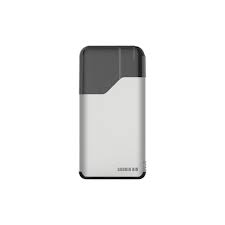Vaping a Trend Despite Potential Harm

The Suorin the most common vaping device found at BASH.
Athena, a freshman, says she first tried vaping “from friends at school” and has been vaping for about a year now. She said that while she is aware of the health risks, she doesn’t plan on stopping anytime soon, and that many others she knows vape.
“At least 25 people I know do it, even in school,” she said.
Athena is not alone. According to a 2017 Berks County Youth Survey, almost 15 percent of teens surveyed said they vaped. Among them, 18 percent said they put nicotine in their e-cigarette (almost 45% of seniors in Pennsylvania who vaped did so).
Vaping, or smoking electronic cigarettes, first became popular in China (e-cigarettes were patented in 2003 by Hon Lik, a Chinese inventor). While first touted as something that could help people quit smoking tobacco cigarettes, many have become worried about the health effects, especially on young students.
More than 40% of people who vape end up smoking, according to a 2015 study by truthinitiative.org. The effects of vaping can include respiratory problems (including lung cancer), heart problems, gastrointestinal conditions, nicotine poisoning, and even injury caused by e-cigarette battery explosions, according to the same website.
BASH Officer Gregory Miller said fewer students have been caught vaping at BASH over the last year. However, he said it’s not because fewer students are doing it, but rather because they have become savvier about doing it secretly.
“Students have gotten smarter as far as hiding and being open about it,” he said. “Drugs don’t go away; drug dealers get smarter at how they handle it.”
He said Suorin devices are the most common ones students are caught with, but Juuls also are found every once in a while.
To crack down on vaping, Officer Miller said there has been an increased presence of security in bathrooms. The school is also looking into adding vape detectors in lavatories that detect the moisture in the air of the juice in vapes, he said.
If students are caught vaping, they are put into ISS for a first offense and fined a $10 testing fee per device, so the device can be tested for THC (substance found in marijuana).
If they are caught a second time, they are put in OSS. However, Officer Miller said these punishments are not always effective.
“It’s like vacation for them,” he said. He jokingly said a third offense should warrant a “severe beating”.
A sophomore named Alexia said she vapes most of the day, especially when stressed with school or other things going on in her life.
“I vape because of the flavoring and the buzz from it; it helps me with my problems,” she said. Alexia has been vaping for two years so far, and she doesn’t plan to stop anytime soon. She says she learned how to vape from “other kids in school and friends from outside of school, also from on the internet.”

Kasey Gress is a junior who writes for the CUB. This is her third year writing for the CUB news site, and she is happy to share what she knows about BASH...















